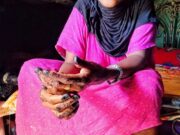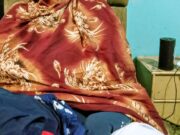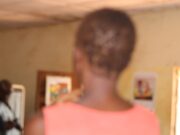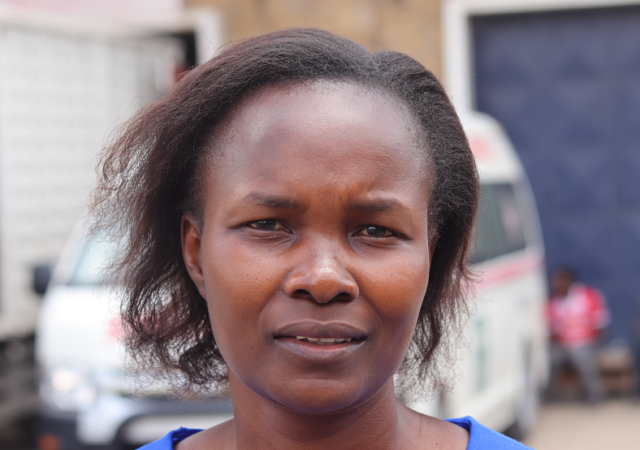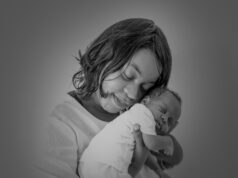By Omboki Monayo l omboki2725@gmail.com
Expectant Kenyan mothers and babies are set for safer deliveries in the wake of a major equipment and training boost targeting 24 facilities in six counties.
The development comes after LifeNet International partnered with the Nairobi County government, five other counties and faith-based health facilities to ensure the distribution of 39 pieces of vital medical equipment.
At least 24 facilities across six counties are set to benefit from the distribution of the equipment. The counties are Nairobi, Kiambu, Kajiado, Nyeri, Kitui and Kirinyaga.
According to the Ministry of Health’s SDG Progress Report of December 2020, the maternal mortality ratio, which is the number of women dying of pregnancy-related causes, stands at 342 deaths per 100,000 live births.
“Estimates by the Maternal Mortality Inter-agency working Group (MMEIG) indicate a reduction in Kenya’s maternal mortality ratio (MMR) from 353 in 2015 to 342 per 100, 000 live births in 2017. However, the annual 3.3 percent rate of decline in MMR was inadequate to achieve the target of 140 per 100,000 live births by 2030,” the report says.
According to the United Nations Population Fund (UNFPA), at least 80.6 percent of births in Kenya are done by a skilled health personnel. This has left a number of mothers exposed to the risks of dying while giving birth.
“Given the current annual births, this means that there are nearly 5,000 women and girls dying annually due to pregnancy and childbirth complications,” the UN body says on its website page dedicated to the country’s maternal mortality status.
UNFPA notes that vital improvements have been made in ensuring that more women deliver their babies in recognized health facilities, but points out that four out of every five maternal deaths are due to substandard medical care.
“While access to skilled birth attendance has improved from 62 percent to about 70 percent over the last seven years, over 80% of maternal deaths are attributed to poor quality of care,” writes the UNFPA.
Also Read: How health workers in Kibera are assessing sick children using a new digital health tool
LifeNet International is a health system strengthening organization focused on delivering high quality capacity building in medical interventions.
It also boosts health facility management to improve the service provision of essential services to under-served communities through partnership with faith-based health facilities.
Since 2009, LifeNet has been working with local, faith-based health facilities in sub-Saharan Africa to bridge the deadly gap separating existing knowledge, tools, and resources from the healthcare workers who need them to save lives.
Through its growing network of 375 facilities spread across Uganda, Kenya, Ghana, Malawi, Burundi, and the Democratic Republic of the Congo, the organization deploys life-saving and health-boosting interventions directly to healthcare workers.
It also assists health facilities to build their capacity and quality in patient safety, maternal, newborn and childcare, family planning, HIV/AIDs, NCDs, general primary care, pharmaceutical management and spiritual integration.
On October 19, 2022, LifeNet held a distribution event at the Mission for Essential Drugs and Supplies (MEDS) headquarters in Nairobi. The event was flagged off by Sarah Borger, who is the organization’s Vice President of Programs and Operations.
Speaking at the event, Ms Borger revealed that the initiative aims to provide 39 pieces of high-impact medical equipment to support 12 health facilities across 6 counties in Kenya.
“We are flagging off the distribution of life-saving medical equipment to the various facilities in six counties across the nation. This equipment will improve the quality of healthcare received at the health facilities and is expected to save and improve lives,” Ms Borger said.

LifeNet so far has provided 88 pieces of medical equipment to 24 faith-based health facilities in 2022 alone.
The medical equipment includes maternity and delivery beds, AMBU bags, oxygen concentrators, resuscitation tools, blood or hematology analyzers, autoclave machines, infant and incubators.
Autoclaves are used to sterilize equipment used during the deliveries. In the process, they help to ensure the safe and healthy delivery by preventing infections like neonatal sepsis from endangering the babies’ lives.
Incubators are used to protect the delicate existence of babies born prematurely. Hematology analyzers are used in analyzing the mother’s blood for signs of anaemia and any other deficiencies that might threaten the delivery process.
The consignment also included specially designed delivery beds designed to make the process of giving birth as comfortable as possible.
Besides supplying medical equipment, LifeNet provides capacity building in clinical and management best practices, quality assurance, and supportive supervision.
“These interventions have worked together to boost the quality of healthcare facilities in sub-Saharan Africa and helped provide essential services which have saved thousands of lives of mothers and babies,” Ms Borger said.
She pointed out that maternal and child deaths in the region could be reduced by handling pregnancy and delivery with the proper education and equipment, adding that LifeNet was committed to making a positive contribution towards this noble goal.
“Most maternal and newborn deaths in the region are preventable with the right knowledge, skills, and equipment. This medical equipment, coupled with high-impact medical and management training that LifeNet provides, is critical in preventing maternal and newborn death and disease and providing quality healthcare to communities,” said Ms Borger.
“We look forward to all the lives that will be saved and are thankful for the opportunity to support health facilities to deliver high-quality healthcare,” she added.
Also read: PASHA, a mobile app to help fight FGM in Kuria launched
On her part, Dr. Queenter Oyato, who is Head of Partnership Coordination in Nairobi County, said that LifeNet is among the valued partners helping to improve the quality of its healthcare services.
“LifeNet is one of our valued partners in the efforts we are making to improve the quality of healthcare. It supports us through the provision of continuous medical education, training and capacity building as well as provision of medical equipment,” Dr Oyato said.
She explained that maternal and child health care is a diverse field that requires considerable investment in order to reduce maternal and child mortality while securing the best possible health outcomes for mothers and their babies.
Dr Oyato said the county’s growing population required an equivalent response in terms of health service delivery.
“Nairobi’s population is expanding rapidly and there is need for a corresponding increase in facilities, staff, skills, knowledge and equipment to cater to the people. When it comes to staff training and empowerment, we would benefit from having more partners involved in the process,” she said.
Dr Oyato said the county had trained its staff on the use of the modern equipment, adding that the partnership with LifeNet was boosting its capacity to reach more people by educating its community health volunteers to direct pregnant mothers to the facility for delivery and care of their babies.
“LifeNet is helping us to equip the facilities and also train the CHVs so that they can empower expectant mothers at community level to make healthy choices that include attending the required antenatal clinic (anc) sessions and delivering their babies at recognized health facilities,” said Dr Oyato.
She urged expectant mothers to attend the ANC sessions for advice and guidance on maintaining healthy pregnancy and going through a safe delivery process.
“Attending ANC sessions is very important for every pregnant mother. Here, we have trained staff that will offer the required assistance, detect and diagnose any possible health complications such as ectopic pregnancies, pre-eclampsia, anaemia and gestational diabetes. They are also skilled in guiding the mothers on what to do to deliver healthy babies. Mothers and their babies are in safe hands with us,” she said.
Also read: Why Kenyan teenage mothers do not return to school despite re-entry policy
LifeNet’s Kenya Program Manager, Edwin Nyakan, said his organization was a committed partner in the country’s quest to improve health outcomes for mothers and the babies they hoped to deliver in the country’s health facilities.
“We have always endeavored to support the Ministry of Health by transforming healthcare systems through the provision of holistic, and compassionate care to patients,” said Mr Nyakan.
He further expressed confidence in the continued partnership between LifeNet and the Ministry of Health and faith based organizations that operate health facilities in the country.
“We are committed to continuing into the future, with the Ministry of Health’s support. Our goal is to save and improve as many lives as possible through high-quality healthcare,” Mr Nyakan said.
Photos: Omboki Monayo
Do you have feedback on this article? Please e-mail: maryanne@mummytales.com
Do you work in an organization that has programmes for mothers and children that you’d like highlighted? Reach me on maryanne@mummytales.com and I’ll get back to you.
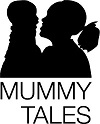 Mummy Tales is a platform dedicated to women and girl empowerment. Connect with Mummy Tales on: FACEBOOK l YOU TUBE l INSTAGRAM l TWITTER
Mummy Tales is a platform dedicated to women and girl empowerment. Connect with Mummy Tales on: FACEBOOK l YOU TUBE l INSTAGRAM l TWITTER














